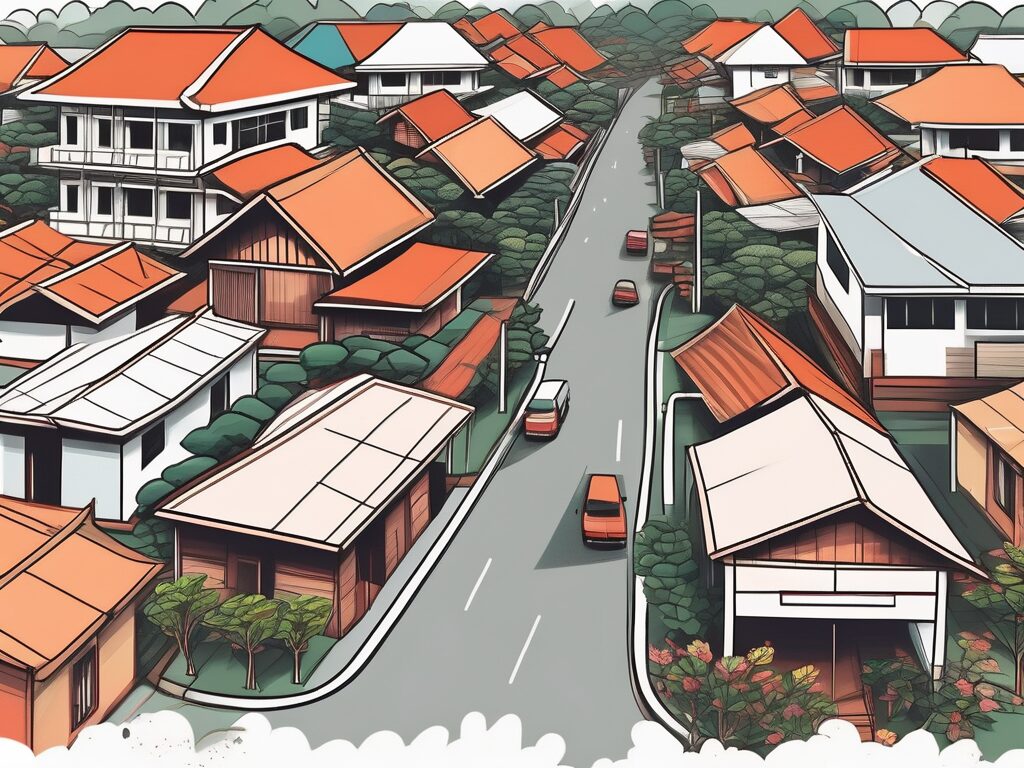Living in Indonesia: Cost Insights for International Teachers 2025
Indonesia, an expansive archipelago comprising over 17,000 islands, has emerged as a prominent destination for international educators. The nation’s rich cultural tapestry, diverse geographical features, and hospitable populace render it an appealing locale for teaching professionals. However, a thorough understanding of the cost of living is imperative for those contemplating relocation. This guide provides an in-depth analysis of the various living expenses in Indonesia, encompassing accommodation, food, transportation, leisure activities, and healthcare.
Accommodation Expenses
Rental Market Overview
The cost of accommodation in Indonesia is influenced by geographical location and housing type. In urban centers such as Jakarta and Bali, the monthly rental for a one-bedroom apartment in the city center typically ranges from IDR 5,000,000 to IDR 10,000,000 (£260 – £520). Conversely, properties situated outside the city center are more economical, with prices between IDR 3,000,000 and IDR 5,000,000 (£156 – £260).
For those requiring larger living spaces, a three-bedroom apartment in the city center can range from IDR 15,000,000 to IDR 30,000,000 (£780 – £1,560) per month. Outside the city center, costs decrease significantly, falling between IDR 7,000,000 and IDR 15,000,000 (£364 – £780).
Property Acquisition Considerations
Acquiring property in Indonesia presents unique challenges for foreign nationals, yet it remains feasible. Property prices vary considerably based on location. In Jakarta, the average cost per square meter for an apartment in the city center is approximately IDR 30,000,000 (£1,560), while outside the city center, this figure decreases to around IDR 15,000,000 (£780).
In Bali, property values are notably higher due to increased demand from expatriates and tourists. The average price per square meter for an apartment in the city center is about IDR 50,000,000 (£2,600), with prices outside the city center averaging IDR 30,000,000 (£1,560).
Food and Beverage Expenditures
Dining Options
Indonesia offers a diverse culinary landscape, catering to various tastes and budgets. A meal at an affordable restaurant typically costs between IDR 20,000 and IDR 50,000 (£1 – £2.60). For a more elaborate dining experience, a three-course meal for two at a mid-range establishment may range from IDR 200,000 to IDR 500,000 (£10 – £26).
For those who enjoy beverages, a pint of local beer is priced around IDR 35,000 (£1.82), while imported varieties may cost approximately IDR 50,000 (£2.60). A standard cappuccino in a café ranges from IDR 25,000 to IDR 40,000 (£1.30 – £2.08).
Grocery Costs
For individuals who prefer home cooking, grocery prices in Indonesia are relatively low. A liter of milk costs about IDR 16,000 (£0.83), a loaf of fresh white bread is approximately IDR 14,000 (£0.73), and a dozen eggs can be acquired for around IDR 20,000 (£1.04). Fresh produce is also reasonably priced, with a kilogram of apples costing about IDR 30,000 (£1.56) and a kilogram of tomatoes around IDR 15,000 (£0.78).
Transportation Costs
Public transportation in Indonesia is notably affordable. A one-way ticket on local transit is approximately IDR 4,000 (£0.21), while a monthly pass is around IDR 200,000 (£10.40). Taxi fares are also reasonable, starting at IDR 7,500 (£0.39) with an additional charge of IDR 4,000 (£0.21) per kilometer.
For those opting to drive, the average petrol price is about IDR 9,000 (£0.47) per liter. However, it is important to note that traffic congestion in major cities can be significant, particularly during peak hours.
Leisure and Entertainment Expenses
Leisure and entertainment costs in Indonesia can vary based on individual preferences. A cinema ticket is priced around IDR 50,000 (£2.60), while a monthly fitness club membership typically costs about IDR 500,000 (£26). For outdoor enthusiasts, entrance fees to national parks range from IDR 20,000 to IDR 50,000 (£1 – £2.60).
Indonesia boasts a vibrant cultural scene, featuring numerous museums, art galleries, and music festivals. Entrance fees for museums and galleries range from IDR 10,000 to IDR 50,000 (£0.52 – £2.60), while tickets for music festivals can vary from IDR 500,000 to IDR 1,500,000 (£26 – £78).
Healthcare Costs
Healthcare services in Indonesia are relatively affordable compared to many Western nations. A consultation with a general practitioner typically costs between IDR 150,000 and IDR 300,000 (£7.80 – £15.60), while specialist consultations range from IDR 300,000 to IDR 500,000 (£15.60 – £26). Prescription medications are also reasonably priced, with a box of antibiotics costing around IDR 50,000 (£2.60).
In summary, the cost of living in Indonesia for international teachers is generally manageable, particularly when juxtaposed with many Western countries. However, expenses can fluctuate significantly based on lifestyle choices and geographic location. Therefore, it is essential for prospective expatriates to conduct thorough research and meticulously plan their budgets prior to relocation.
Advance Your Teaching Career with IPGCE
Given the favorable cost of living in Indonesia, now is an opportune moment to enhance your teaching career in this remarkable country. The International Postgraduate Certificate in Education (IPGCE) offers a pathway to overcome common barriers such as stringent qualification requirements, limited career advancement opportunities, professional isolation, and the necessity for a comprehensive understanding of global educational systems. Our program is specifically designed for educators seeking to elevate their professional development and engage with a global network. Enroll in the UK’s leading Teacher Training Course to experience a significant enhancement in your qualifications, resulting in increased interview callbacks, promotion rates, and salary potential. Embrace the flexibility of our online study options and become part of a success-driven community. Join the UK’s #1 Teacher Training Course today and take the next step in your international teaching journey.

